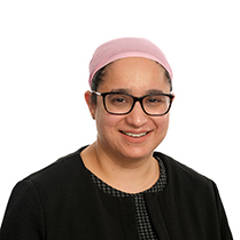18/12/2020
NHS England launched a consultation on the developing form of ICSs to underpin their push to create a statutory decision making body for ICS across England. The issues are set out in the NHSE board paper, together with descriptions of the two options and four questions on which they are seeking responses.
As well as outlining what ICS areas need to put in place for 2021/22, and we will be commenting on these later. However, the immediate priority is responses to the proposals on ICS structure, which NHS England is calling for by 8 January.
Two options
Two options are put forward,-
- A statutory committee model where representatives of the CCG, local authority, primary care and at least NHS local providers take decisions which can bind the parties. It is also proposed that there would be a system accountable officer, chosen from the AOs or CEOs of the Board’s mandatory members. The ICS board would be responsible for a system plan, and all members would be bound to comply with it. Given the role of the system plan, it would appear that the high level commissioning functions would be ICS business, which it is acknowledged might leave the CCG as a parallel body with few other functions.
- The replacement of CCGs with new NHS bodies to carry out the ICS functions. This is more radical, but is preferred as a more long-term solution to the issues. GP membership and the current CCG governing body would be replaced by an ICS board with members as for option 1 plus a CEO, a Chair and a Finance Director. This would take on the high level commissioning functions of CCGs, and the avoidance of the current conflict of interest in primary care is noted. The paper does not address the newly created conflicts of the ICS board including NHS providers who are equally conflicted.
The paper asks four questions
- Do you agree that giving ICSs a statutory footing from 2022, alongside other legislative proposals, provides the right foundation for the NHS over the next decade?
- Do you agree that option 2 offers a model that provides greater incentive for collaboration alongside clarity of accountability across systems, to Parliament and most importantly, to patients?
- Do you agree that, other than mandatory participation of NHS bodies and Local Authorities, membership should be sufficiently permissive to allow systems to shape their own governance arrangements to best suit their populations needs?
- Do you agree, subject to appropriate safeguards and where appropriate, that services currently commissioned by NHSE should be either transferred or delegated to ICS bodies?
Some initial thoughts
Whilst the questions do make NHSE’s preferences clear consultees may wish to respond more widely.
The first question raises issues over whether the purchaser provider split model is a the right model for the future; if as contemplated the commissioning is high level and outcomes based reflecting the system plan, and all parties work together to deliver it, what role does the contract have ? Equally, it does not appear to be proposed that primary medical and dental care is changed from a detailed contractual model, and the recent framework for independent providers assumes a continuation of tariff, and a current contractual model. This seems likely to create potential tensions in the financial system. It also raises questions about how the ICS engages with not member providers such as care homes.
We would agree that option 2 is a clearer model and avoids what would otherwise be a messy set of accountability lines; however, neither seems to grapple with the position of local authorities as commissioners, and it is unclear how the financial allocations will work across health and social care boundaries. There are problems in both models about how primary care is represented, and who is bound by the decisions.
In terms of governance, we agree there needs to be a mandatory core, but conflicts of interest will still exist while the organisations remain separate, and there is a glaring omission of any public or patient involvement on the ICS board. We would suggest that this should be mandatory, even if only in the form of non – executive directors with explicit duties to reflect the patient voice.
The transfer of NHS commissioning to ICS has some merit, but the detail of the safeguards where there are differences in the incidence of high cost specialised treatments may need to be clearer.
We recognise you will have your own views on these proposals, but we would recommend letting NHS England know.
For more information on ICS developments please contact David Owens or Carly Caton.


